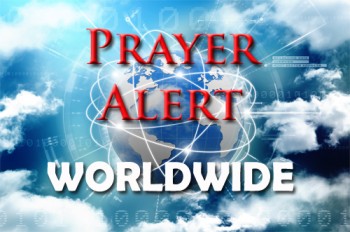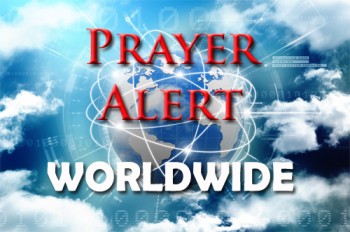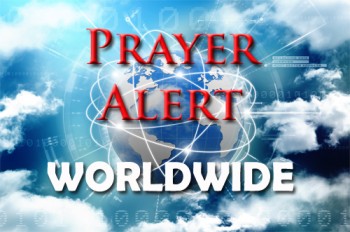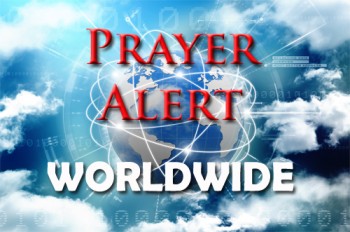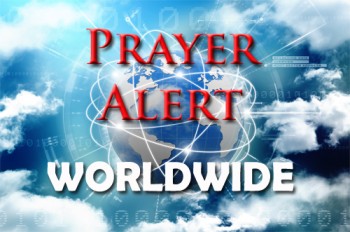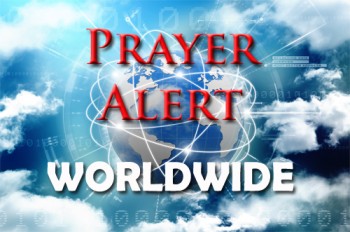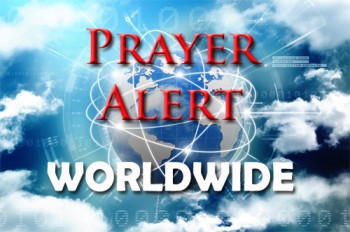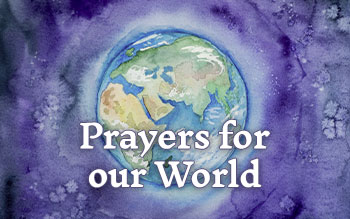Displaying items by tag: Asia
Iraq: protests and scandals
Anti-government protests over corruption and lack of jobs and public services have continued since early October. On 21 November, force by security guards failed to unblock Baghdad bridges and al-Tahrir Square where hundreds of protesters held their ground against bullets and teargas. They also have blocked roads around Basra. Road closures lead to large losses for the Iraqi economy and negatively affect the daily life of citizens by preventing the flow of food, medical supplies and other goods. Demonstrators demand comprehensive political reform, accountability for corruption, improvement of public services, and job opportunities. But protests are not reshaping the country's politics. They are affecting the entire region as new scandals against the government are revealed almost daily. The most recent exposed Tehran's growing influence in Iraq.
Israel: EU condemns rocket fire on Israeli civilians
On 12 November the Israel Defence Forces killed a senior commander of a Jihad terror group responsible for firing dozens of rockets out of the Gaza Strip. This prompted a massive retaliation of over seventy rockets fired at Israel’s civilian districts. The UK’s foreign office advised visitors that attacks could be indiscriminate, including places frequented by foreigners, and on public transport. Most embassies in Tel Aviv have heightened caution or have temporarily closed. Palestinian Islamic Jihad declared that it was preparing for war with Israel. By 13 November, 220 rockets had been fired as far north as Tel Aviv, with 90% intercepted by the army. Schools in the south and much of the centre were closed, keeping 1 million students at home, and a commando unit was deployed to secure border communities from possible infiltration. On 14 November a ceasefire was achieved, but just hours later five rockets were launched from the coastal enclave, with two of them intercepted by Israel’s army. See also
India: trafficking networks hidden in communities
IJM supported Mumbai authorities in rescuing five girls and young women from a small, cluttered apartment where they were being repeatedly sold for sex. Police have also arrested a 35-year-old woman suspected of exploiting these victims to a network of private customers. She would secretly share images of the girls to potential customers over social media and then, based on the customer’s selection, force the girls to come to her home on demand. The girls and young women she abused lived nearby in the community. The police concentrate on traditional red-light areas, brothels and lodges to find and protect minors, and consequently traffickers have attempted to operate only through close networks and unassuming homes to avoid being caught. We can thank God for the rescue of these girls: may they speedily recover in the safe environments now being provided.
Global: mothers speak out on climate change
From the vanishing Solomon Islands to the burning Amazon rainforest, mothers speak up from danger zones. Alice, in Brazil, fears for her two-month-old son: ‘It is hotter than when I was a child, and I don’t know how it will be when he grows up. There is more pollution, he’s already having breathing problems. I am privileged to live in this paradise, but I look around today and fear that we are losing it.’ Baby Rafsan lives in Dhaka, Bangladesh, the most overpopulated city in the world. His mother said, ‘We fear for our futures but not enough to quit using cars to save the climate'. By 2050 one in seven people will be displaced by rising sea levels - that’s 18 million people. Bangladesh will not exist in 100 years if carbon dioxide emissions remain the same. ‘My baby should not be wearing a mask’, said a mother in Delhi.
Persian Gulf: Operation Sentinel launched
Large navy vessels will watch at chokepoints while smaller vessels will patrol key transit lanes, and airborne assets will monitor traffic in the Persian Gulf. This stems from a new coalition officially launched on 7 November from its Bahrain headquarters. It will protect shipping in the troubled waters after a string of attacks that Washington and its allies blame on Iran, threatening the world’s oil supply. Iran denies responsibility for the attacks, and has put forward its own proposals for boosting Gulf security - that pointedly exclude outside powers. The new mission, dubbed Operation Sentinel, will see vessels escorted through the Strait of Hormuz, the strategic chokepoint at the head of the Gulf and the main artery for transporting oil. Australia and the United Kingdom are the main non-Gulf countries to have sent warships to escort shipping. The newest member, Albania, joined on 6 November.
Hong Kong: student casualties
Chow, a university student, fell from the third floor of a car park while fleeing tear gas and suffered a significant brain injury as a result. A third-year journalism student, surnamed Tang, was arrested on 2 November when covering protests in Taikoo Shing. His university’s student union said that when he was arrested, he was wearing his press card and journalists’ association membership card, and had not taken part in any of the frontline protest activities. Pray for police to respect the rights of student reporters and ensure their safety when they are performing their duties. Also, the university has asked the police commissioner for full details about a qualified St John Ambulance first aider student who suffered serious burn injuries after being hit by a tear-gas canister while performing his duties. Students and alumni are demanding that the universities condemn police violence as they handle anti-government protests.
Saudi Arabia: punishing cost of change
Human Rights Watch reported on 4 November that important social reforms enacted under Saudi crown prince Mohammed bin Salman have been accompanied by deepening repression and abusive practices meant to silence dissidents and critics. The 62-page report documents ongoing arbitrary and abusive practices by Saudi authorities targeting dissidents and activists since mid-2017 and a total lack of accountability for those responsible for abuses. Despite landmark reforms for Saudi women and youth, ongoing abuses demonstrate that the rule of law remains weak and can be undermined at will by political leadership. The authorities have locked away many leading reformist thinkers and activists. HRW said that detaining citizens for peaceful criticism of the government’s policies or human rights advocacy is not new in Saudi Arabia, but what has made the post-2017 arrest waves notable is the sheer number and range of people targeted over a short period, and new repressive practices.
Syriac Christian community
In the northeast of Syria, in a number of cities and their surrounding villages, a renaissance is under way in the area’s beleaguered Syriac Christian community, which is attempting to revive the Syriac language and culture after decades of neglect and oppression. The Christian community as a whole has suffered immensely during the ongoing eight-year conflict, and this minority is no exception. The conflict has, however, also brought about social changes that previously would have been thought impossible, particularly in areas under the control of the Kurdish-led Syrian Democratic Forces (SDF). Escalating its threat to invade the area despite the presence of American, British, and French troops, Turkey could reverse these changes and even jeopardise the continued existence of the Christian community there. These Christians have preserved their unique languages and cultures in the face of decades of Arabisation. Syriac Christians will teach their children their ancestral language, derived from Aramaic, the native tongue of Jerusalem, where the church was born.
North Korea / USA / Iran: nuclear programmes
South Korea’s national intelligence service told a closed-door parliamentary audit session that it expected working-level denuclearisation talks between Kim and Trump to resume by early December. As recently as 31 October Kim test-fired two short-range missiles that traveled 350 to 400 kilometres. The tests were believed to be the nuclear-armed country’s 19th and 20th launches since May. Japan’s prime minister condemned the launches as an act threatening the peace and safety of his country as North Korea was refining weapons capable of reaching it. Meanwhile, Iran announced launching a new batch of advanced centrifuges to accelerate uranium enrichment on the 40th anniversary of the start of its Islamic Revolution. However, Tehran has left room for diplomacy by saying that talks are possible if Washington lifts all the sanctions and returns to the nuclear deal. See
Chinese officials demolish megachurch and arrest leaders
Chinese Christians in Anhui are said to be ‘outraged’ after their state-registered megachurch was demolished and their pastors arrested.
Demolition work (pictured) began at Funan County Christian Church on Friday, partway through a worship service. (More information and short video clip of the demolition here.)
Elderly church members knelt down in front of the church, begging officials not to destroy the building, says Release partner ChinaAid. Several fainted and required hospital treatment.
Pastors Geng Yimin and Sun Yongyao were arrested the next day on suspicion of ‘gathering a crowd to disturb social order’. Their church could seat up to 3,000 people.
ChinaAid Director Bob Fu says believers are ‘outraged’.
‘The Chinese Government is now ordering believers to worship in a remote endangered building which can only host a few hundred people,’ he said. Yet, ChinaAid says many Christians, including those in Funan, are too afraid to speak out for fear of more persecution.
Pray: that God will bless His people in Funan and provide a new building for them. Pray that they will grow in unity and faith through this ordeal.
Pray: for the immediate release without charge of Funan pastors Geng Yimin and Sun Yongyao. Ask God to comfort those who were distressed by the demolition.
Praise: God that Christianity is growing fast in China, despite intense persecution. Sources quoted by ChinaAid estimate that there are now more than 100 million Christians in China.
(Source: China Aid)
